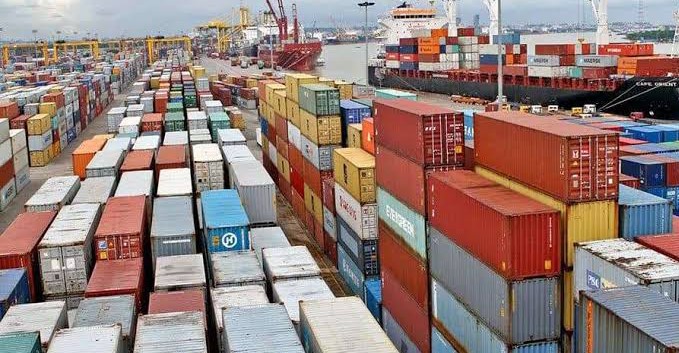
As the Nigerian naira continued to weaken against the United States dollar in the foreign exchange market, the rate used to calculate import duties at the country’s seaports has risen by 3.5 percent.
JOIN US FOR MORE ON:
or
or Follow us on WhatsApp Channel
According to details from the official trade portal of the Nigeria Customs Service, the Central Bank of Nigeria adjusted the Customs FX duty rate from N1,327.35 per dollar to N1,373.646 per dollar on Tuesday, April 30.
This signifies a 3.5 percent rise in comparison to the previous rate of N1,327.35 per dollar used for initiating Form M, resulting in an additional N46.296 required per dollar for clearing goods at the port.
In practical terms, importers initiating Form M today will need to allocate more funds for paying import duties compared to those who initiated Form M on Monday, benefiting from a lower exchange rate for cargo clearance.
Industry experts highlight that this development is exerting significant pressure on businesses, particularly manufacturers reliant on imports for essential production inputs.
They emphasize that the unpredictable nature of the exchange rate for cargo clearance at the port is posing challenges for importers and manufacturers, making it difficult for them to strategize effectively.
Tony Anakebe, a Customs licensed agent, expressed that businesses require stable foreign exchange rates and consistent exchange rates for cargo clearance to plan and maintain profitability. Presently, businesses are facing challenges on multiple fronts, as foreign exchange rates are high and volatile, and similarly, FX rates for cargo clearance at the port are also elevated and subject to fluctuation.
The adjustment in the customs FX duty rate underscores the need for businesses to closely monitor currency dynamics and adapt their strategies accordingly. It also highlights the interconnected nature of global trade and currency markets, where local policies can have profound implications on businesses and consumers alike.
Stakeholders in the Nigerian economy will be closely watching for further developments and potential policy adjustments to navigate the challenges posed by currency fluctuations. The effectiveness of these measures in stabilizing the Naira and supporting economic growth remains a critical concern for policymakers and market participants alike.
